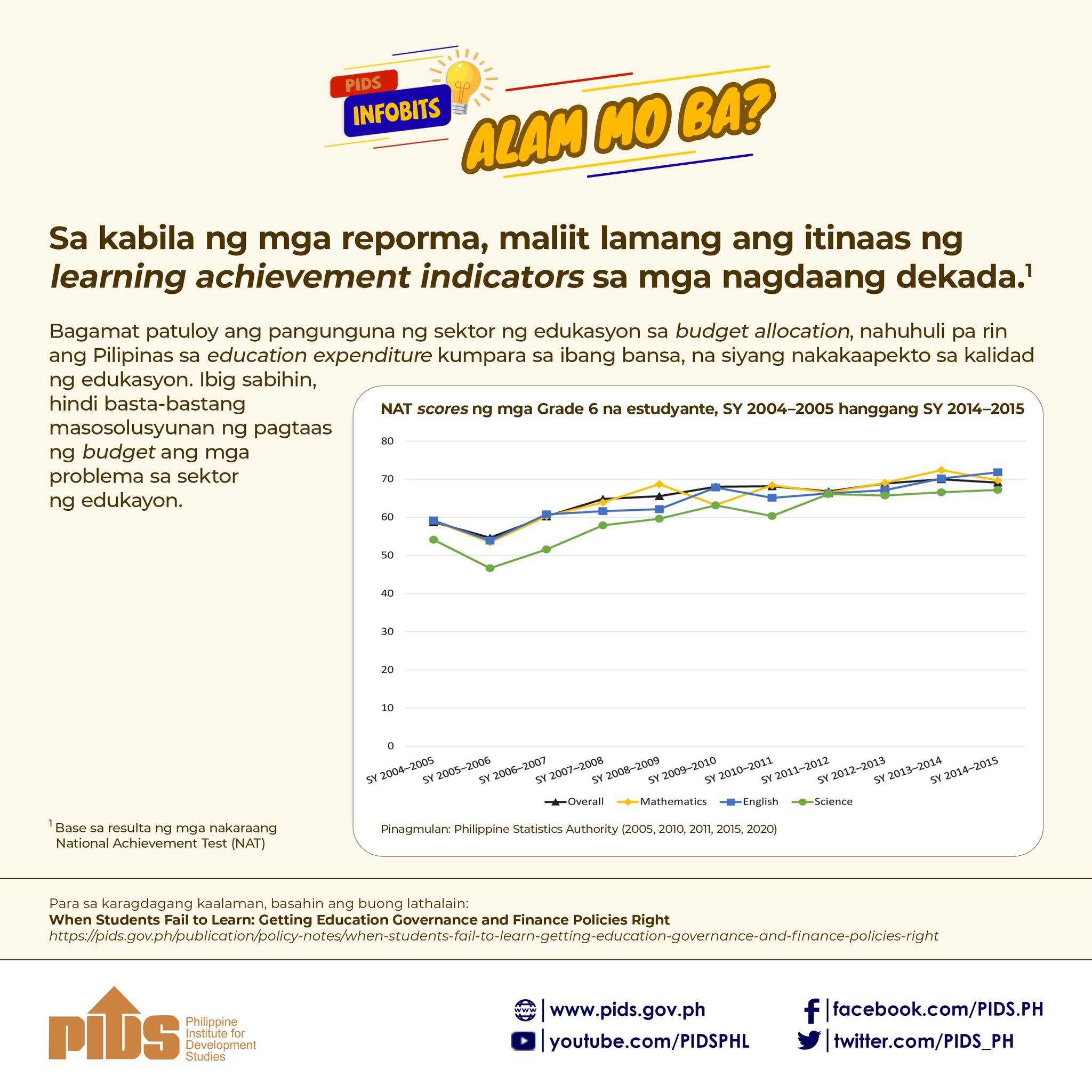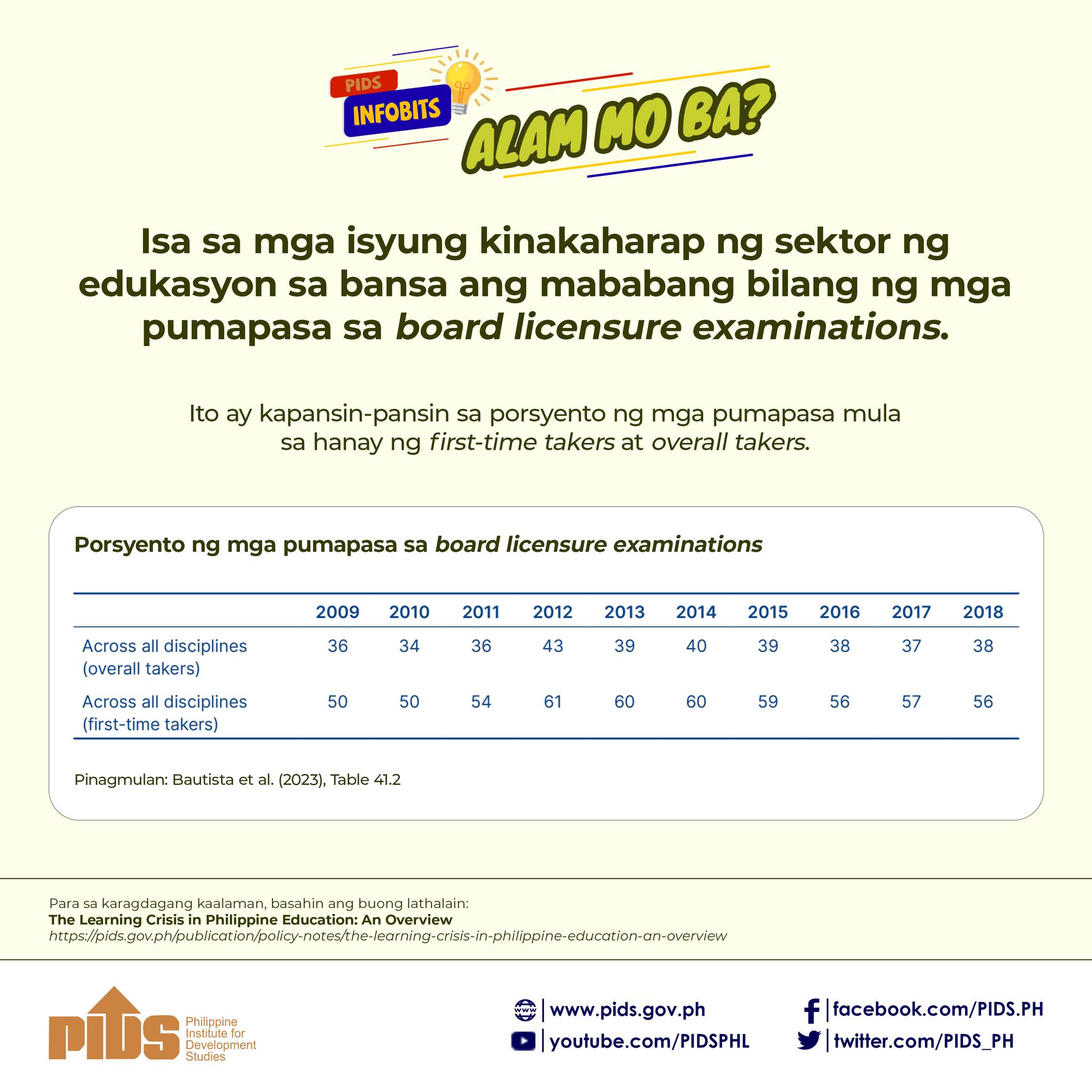The issue is whether to accept the proposal of the Department of Education which is to abandon the teaching of MTB-MLE or the Mother Tongue in Grades 1-3 and to merely adopt it as a medium of instruction. Or to continue with both as proposed by E-Net, a Civil Society Network for Education Reforms, which urged the Department of Education to identify its strengths and challenges to improve its overall implementation. It argues that “forcing our children to learn in an unfamiliar language creates an educational handicap. The suspension will further hold back progress and gains we have achieved in placing inclusive education at the center of the Education Agenda.”
Several experts cited research findings in other countries which show that students learned better and faster with the mother tongue. According to an official of the Assessment of Curriculum and Technology Center, “Mother tongue is the key to strengthening the students' skills in English and Filipino.”
The suspension of MTB-MLE stems from the current inability of DepEd to effectively implement the use of the mother tongue in all regions as provided by RA 10530. The law provided for the production of books, instructional and learning materials as well as trained teachers.
DepEd Secretary Sara Duterte supports the suspension and is in favor of a return to the use of English or Filipino as medium of instruction. It was Vice President Sara Duterte who earlier told Congress to give her ₱100 billion and she will be able to fix education in six years.
The decision to suspend the teaching of MTB-MLE was also based on studies made by the Philippine Institute of Development Studies which noted that only nine percent of a sample size of 16,287 schools had complied with the four main conditions of DepEd – orthography, grammar, learning resources and dictionary, in rolling out the MTB-MLE. DepEd also reported that only 78,872 of the 3,305,099 teachers it had aimed to educate were proficient in using the mother tongue as a medium.
There are too many groups who are not in agreement even with the decision to continue using Mother tongue as a medium. If it failed even while MTB-MLE was being taught, it will even be more difficult to implement it without its being taught as a subject, The lack of trained MTB-MLE teachers as well as lack of ability among children to use their mother tongue, and children speaking two or more mother tongues, are factors that need to be addressed. There was lack of transparency in its operations which prevented external interventions or regular evaluation on whether students are learning.
Eventually, the problem may be elevated to EDCOM II for further deliberation and recommendation. I think and I am sure many would agree, that the issue here is again the problem of lack of political will. A prevailing mindset of reluctance to network, to share information, or to work together.












